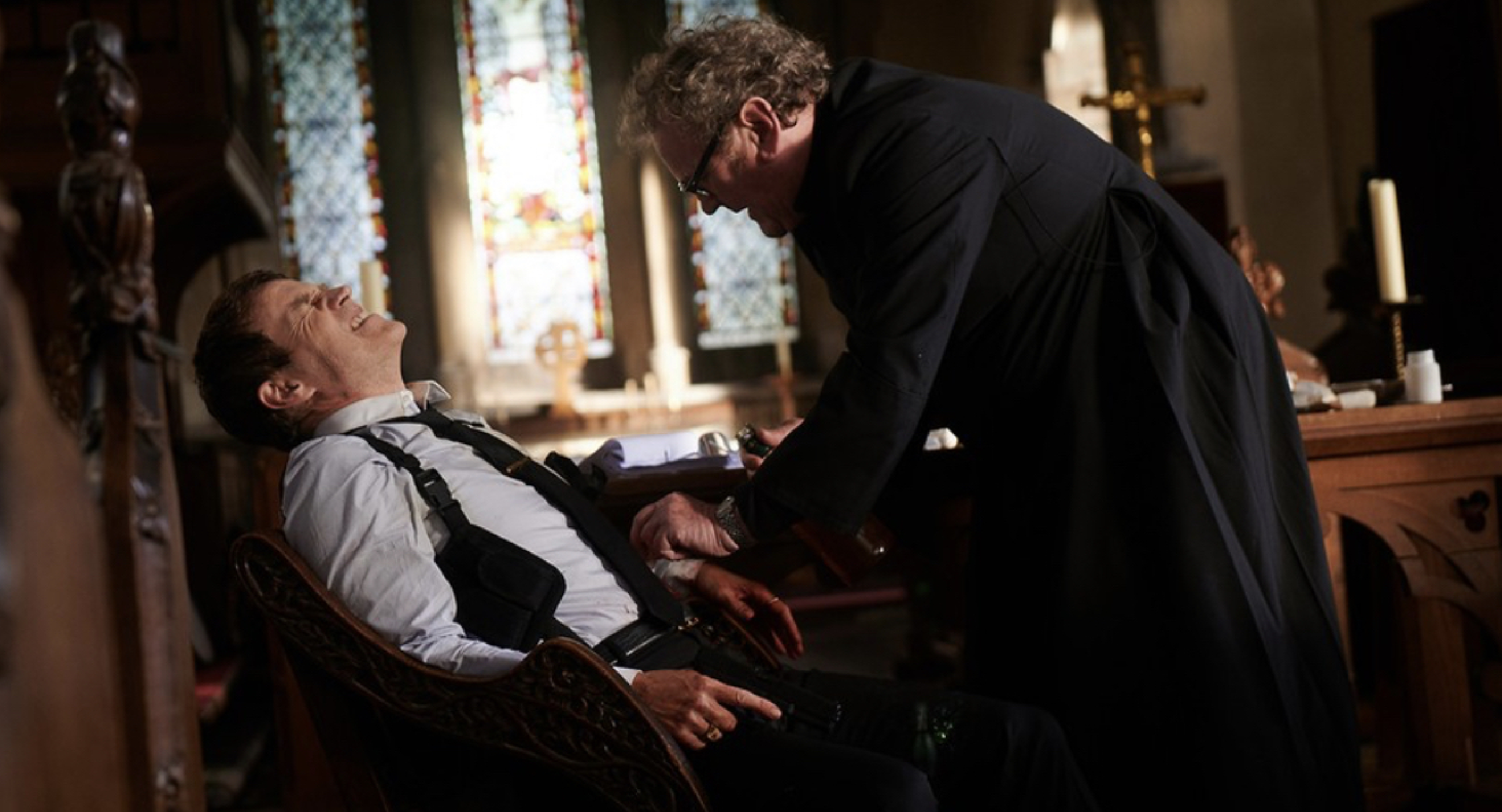Confession – Film Review
Published January 25, 2022

A wounded, bloodied man takes a priest hostage, hell-bent on confessing a vengeful truth before it is too late. The seemingly random encounter is soon revealed to be anything but as the two men’s lives are inextricably linked.
David Beton‘s Confession is an extremely simplistic film while simultaneously being a deeply complex movie. Just the premise alone is absolutely crazy and it could have been an incredibly intense psychological thrill-ride. The keyword there is could, because ultimately, Confession goes nowhere with its concept and is just plain riddled with exposition. It’s a barebones, surface-level drama that doesn’t know what to do for the majority of its running time.
Perhaps Beton is actually a skilled scriptwriter – somebody who knows how to tell a story and tell it well – but you wouldn’t be able to come to that conclusion after Confession comes to a close. I’ve always been a big believer of showing, not telling when it comes to film stories. There are few things more annoying than having to watch a movie where nearly everything is told to the viewer in dialogue. It’s terribly lazy and it just proves that whoever was responsible for the script didn’t know how else to tell these story beats.
Sadly, Confession is a prime example of this happening. We spend almost all of the movie’s extremely brisk running time watching these two men exposition dump to each other. Stephen Moyer is phenomenal in the role of Victor Strong, and so is Colm Meaney as Father Peter. Honestly, they are two of the best performances I’ve seen so far in the year. But as terrific as they are, they don’t really get a whole lot to do except for get into some loud arguments with each other.
It’s a shame because the film is loaded with a bunch of highly talented actors – all of them delivering top-notch performances – but they were sadly straddled with a script that wasn’t able to do them or their talent justice. It also features some remarkable cinematography thanks to Andrew Rodger, who manages to make the film’s setting feel uncomfortably claustrophobic and isolated, which is exactly what this film needed. All of the editing by Neil Lenthall is superb and smooth as well.
But everything else simply fell apart disastrously. Beton has only been involved in the creative process of a couple of films before this one, so we can only hope that his career gets stronger from this point onward. If you don’t succeed, keep trying until you do.
